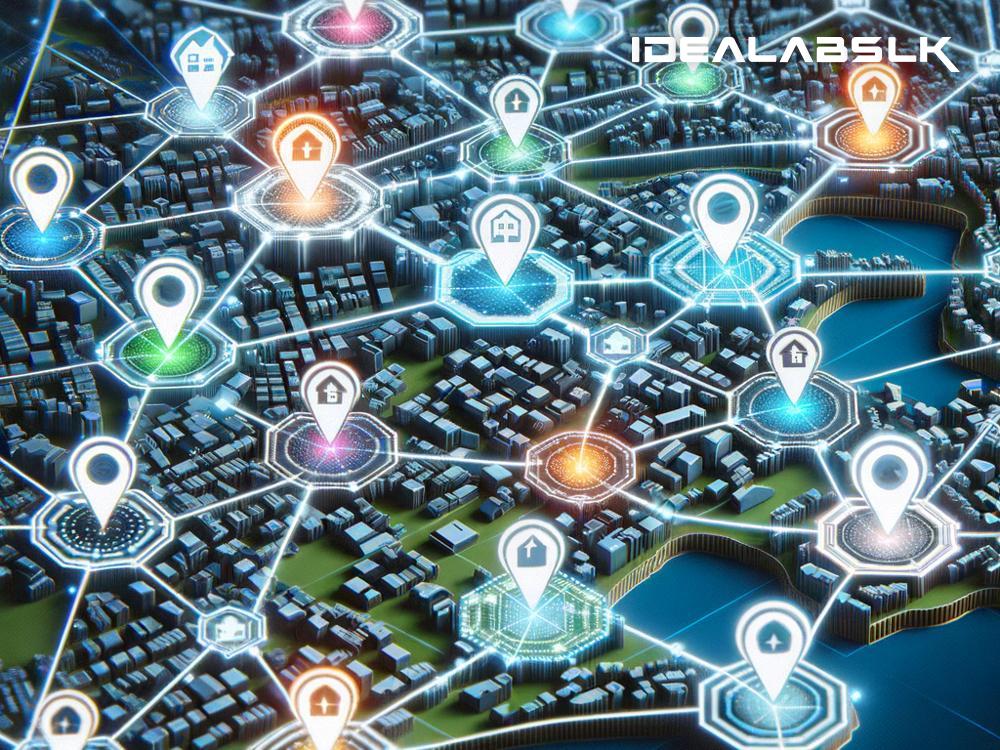Blockchain and Real Estate Ownership Verification: A Simplified Explanation
In today's rapidly advancing world, technology is revolutionizing almost every aspect of our lives, and the real estate sector is not left behind. Among the numerous technologies making waves, blockchain is becoming increasingly significant, especially when it comes to verifying real estate ownership. But what exactly is blockchain, and how does it apply to real estate? Let's break it down into simpler terms to understand better.
Understanding Blockchain
Imagine a digital ledger that is accessible to many people but cannot be tampered with or altered once information is added. This digital ledger is called blockchain. It's like a notebook that many people can write in, but once something is written, it can't be erased or changed, ensuring the information stays safe and secure. This feature makes it an ideal tool for various applications, including financial transactions, voting systems, and, interestingly, real estate ownership verification.
The Challenge with Current Real Estate Ownership Systems
Traditionally, verifying the ownership of real estate involves a lot of paperwork, time, and sometimes, unfortunately, room for error or fraud. Mistakes in public records, fraudulent claims, and the cumbersome process of transferring property can cause headaches for buyers, sellers, and the authorities alike. This is where blockchain technology comes into play, offering a more secure, efficient, and transparent method for real estate transactions and ownership verification.
How Blockchain Revolutionizes Real Estate Ownership Verification
1. Transparency
With blockchain, every transaction is recorded in a way that anyone in the network can see, making the process transparent. In the context of real estate, this means that every time a property changes hands, the transaction details, including the previous and current owners, are visible to everyone involved. This openness helps build trust among parties and reduces the chances of fraudulent claims.
2. Security
Since blockchain records are immutable, once a transaction has been logged, it cannot be altered or deleted. This permanency provides an additional layer of security to the ownership records. In a blockchain-based system, hacking or fraudulently changing ownership records would require altering all subsequent records on the blockchain, which is practically impossible due to its decentralized nature.
3. Efficiency
Transferring property from one person to another involves numerous steps, including verifying the title, ensuring no outstanding claims, and several other legal processes which can be time-consuming and costly. Blockchain can streamline these processes by providing a single, immutable record of ownership and transaction history. This could significantly reduce the time and money spent on property transactions, benefiting buyers, sellers, and the authorities.
4. Accessibility
Blockchain can make real estate records more accessible to individuals and authorities. Instead of going through piles of paper or multiple databases, anyone who needs to verify property ownership or transaction history can do so through the blockchain. This ease of access not only speeds up transactions but also makes it easier for people to invest in real estate, potentially boosting the market.
Real-world Applications
Several places around the world are already experimenting with blockchain for real estate. For instance, some countries are piloting blockchain projects for property registration to combat fraud and improve transaction times. Likewise, startups and established companies in the real estate sector are exploring blockchain to create more transparent and efficient platforms for buying, selling, and renting properties.
Challenges and the Road Ahead
Despite its potential, applying blockchain in real estate is not without challenges. Questions around regulation, adoption by the mainstream real estate market, and the technical expertise required to implement blockchain solutions are significant hurdles. However, as technology advances and more people become aware of its benefits, these obstacles are likely to diminish.
Conclusion
Blockchain technology has the potential to transform the way we verify real estate ownership, making transactions more secure, transparent, and efficient. While there are still challenges to overcome, the benefits far outweigh the hurdles. As society continues to embrace this technology, the dream of a more streamlined and fraud-resistant real estate sector seems not just possible but inevitable. In a world where technology is constantly reshaping industries, blockchain stands out as a beacon of innovation for real estate and beyond.

